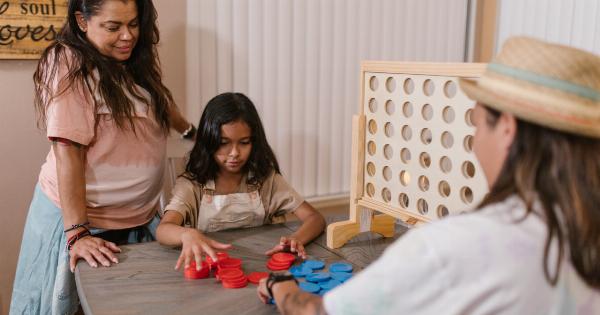As parents, we often compare our children to others’ children, whether we realize it or not. We might compare their grades, their athletic abilities, their social skills, and even their appearance.
However, comparing your child to others can be extremely damaging to their self-esteem and overall well-being. Here’s why:.
Comparisons Are Unfair
First and foremost, comparisons simply aren’t fair. Every child is unique, with their own strengths and weaknesses. When you compare your child to someone else, you’re setting an unrealistic standard for them to live up to.
This can cause them to feel like they’re not good enough, no matter what they do.
It Makes Them Feel Inadequate
When you constantly compare your child to others, they’re likely to start thinking that they’re not good enough. They might feel like they’re not as smart, not as athletic, not as popular, and not as attractive as their peers.
This can lead to a lack of self-confidence and low self-esteem.
They Start Comparing Themselves to Others
When children are constantly compared to others, they start doing it themselves. They might look around and compare themselves to their classmates, their siblings, and even strangers on social media.
This can lead to a never-ending cycle of self-doubt and anxiety.
It Can Damage Your Relationship
If you’re always comparing your child to others, it can strain your relationship with them. They might start to feel like you don’t accept them for who they are and that your love and approval are conditional.
This can lead to resentment, anger, and a lack of trust.
What You Can Do Instead
So, what can you do instead of comparing your child to others? Here are a few tips:.
Focus on their Individual Achievements
Instead of comparing your child to others, focus on their individual achievements. What are they good at? What do they enjoy doing? Celebrate their successes, no matter how big or small.
Encourage Them to Compete with Themselves
Encourage your child to compete with themselves, not others. Help them set goals and work towards improving themselves. This can help them build self-confidence and a sense of accomplishment.
Teach Them to Embrace Differences
Teach your child to embrace differences. Help them understand that everyone is unique and that’s what makes the world such a wonderful place. Encourage them to celebrate their own differences and the differences of others.
Show Them Unconditional Love and Acceptance
Above all, show your child unconditional love and acceptance. Make sure they know that you love them for who they are, not for what they accomplish or how they compare to others.
This can help build a strong, positive relationship that will last a lifetime.
Conclusion
Comparing your child to others can be incredibly damaging to their self-esteem and overall well-being.
Instead, focus on their individual achievements, encourage them to compete with themselves, teach them to embrace differences, and show them unconditional love and acceptance. By doing so, you can help build a positive, healthy relationship with your child that will last a lifetime.






























